成长是一个人必经的蜕变。或许小时候我们并肩携手,然而年岁渐长,我们终于走上截然不同的人生道路。这篇Simina与从故乡罗马尼亚远道而来的姐姐在北京重聚的故事,温暖平淡的语调中有真诚的感动和反思。希望每个人都能够学会,珍惜所爱之人。
By Simina Mistreanu
Anda, my sister, came to visit us in Beijing with her boyfriend, Mihnea.
远在罗马尼亚的姐姐Anda和姐夫Mihnea这几天来北京看我。
They arrived last Tuesday on a flight from Budapest. They are the first visitors my boyfriend and I are hosting in Beijing, to be followed in October by his mom and one of my friends.
他们上周二从布达佩斯飞到北京。他们是我男朋友和我在北京的第一拨客人。十月份还会有我男朋友的妈妈和我的一个朋友到访。

We had a list of favorite places and people we wanted to introduce them to: the neighborhood restaurants and bars – Laoban’s shop, Muwu barbecue and the German bar; our friends and colleagues; favorite spots, including the hutongs and the Great Wall at Mutianyu; the Chinese culture that you can experience everywhere on the streets and by interacting with people.
我们早就给他们在北京的行程列好清单:要去的酒吧和餐馆,要见的我们在北京的朋友和同事,要去的我最喜欢的地方:老北京胡同和慕田峪长城,还有只有走在大街上才能体验到的中国文化。
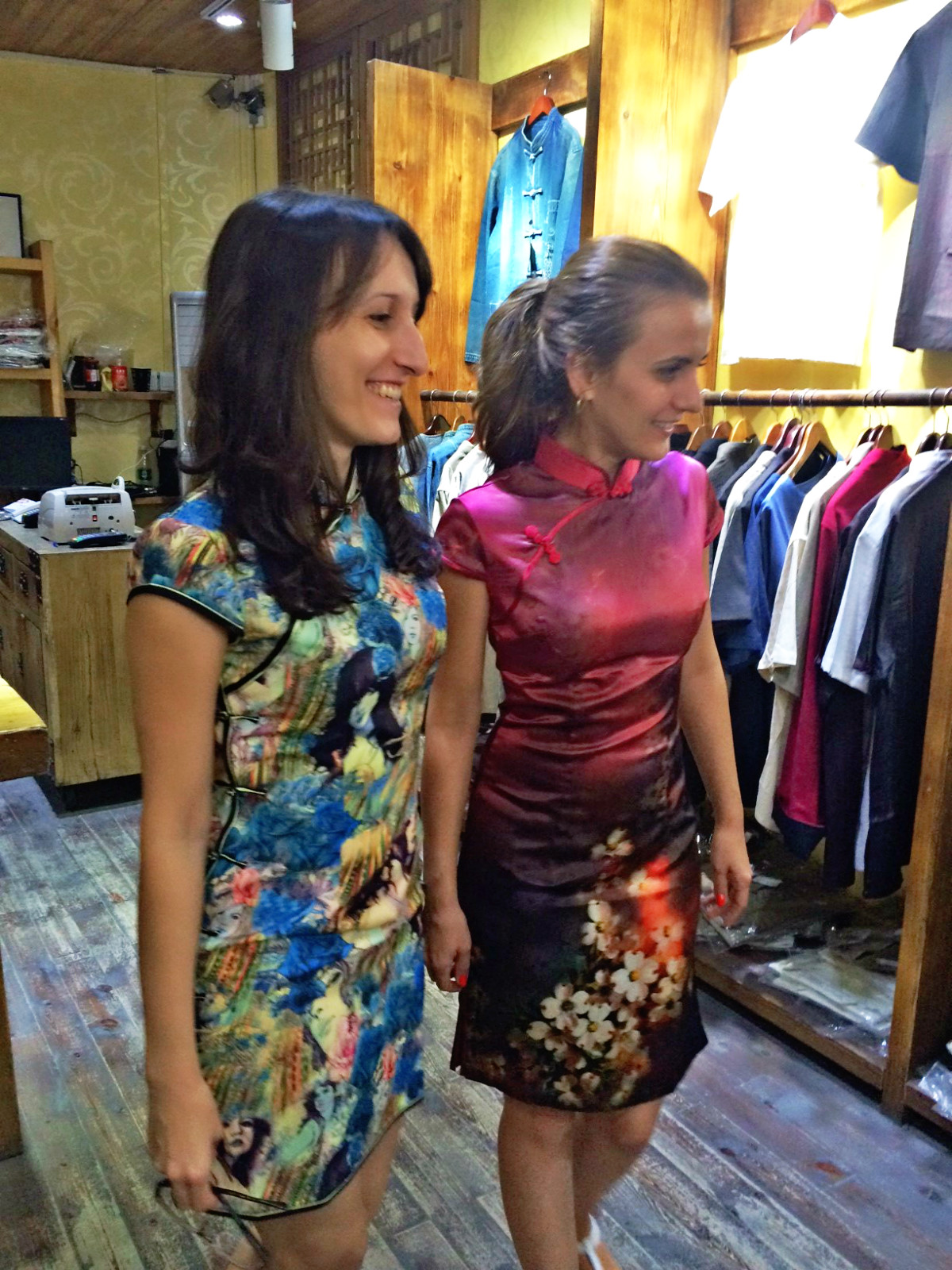
My sister loved Beijing from the moment she set foot in the city.
Right after we got home and left our luggage, she and I went to a local Chinese restaurant that we call Laoban’s for a quick dinner. She had never used chopsticks before. Inside the restaurant, I explained how to use them, and she practiced while a Chinese couple at another table stared at her. She quickly learned to master the chopsticks and wolfed down the lamb, beef, cucumbers and rice we had for dinner. She declared it delicious.
刚下飞机,姐姐就爱上了北京。回家放下行李后,我陪她到一家中餐馆吃中式快餐。在邻桌好奇的注视下,我教她怎么用筷子,她之前从没用过。她学的很快,很快就解决掉一桌饭菜。她评价说很好吃哦。
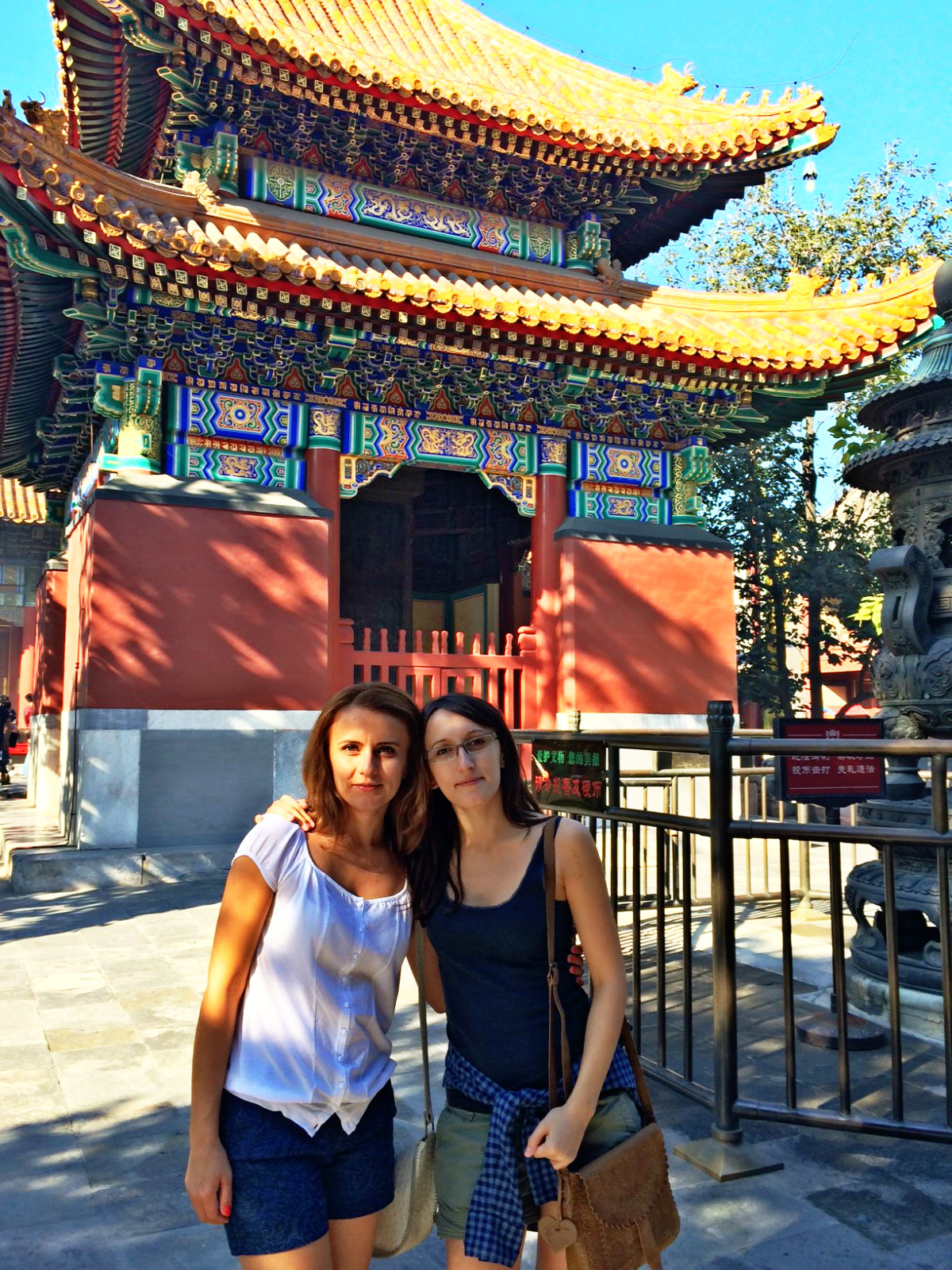
On our way back, she said: “I could get used to living here.”
回家途中,她说:“我肯定很适合住在这里。”
I was pleased to hear her say that but also surprised. My sister didn’t use to be the adventurous type. She lives in a city near the village where we grew up, in western Romania. It’s where we both went to school (She’s four years older than me).
But while I went to Bucharest for college, to the U.S. for my master’s and now to China to live and work, she stayed in our hometown and married in her mid-20s. She is a police officer at the border with Hungary.
我很高兴她这么说,也相当吃惊。姐姐并不是一个冒险型的人,她住在罗马尼亚西部离我们家乡不远的城市里(她长我四岁)。当我留美攻读硕士学位后又来到中国生活和工作的时候,她一直待在家乡,25岁左右就结婚了。她现在是罗马尼亚—匈牙利边境的一名警员。
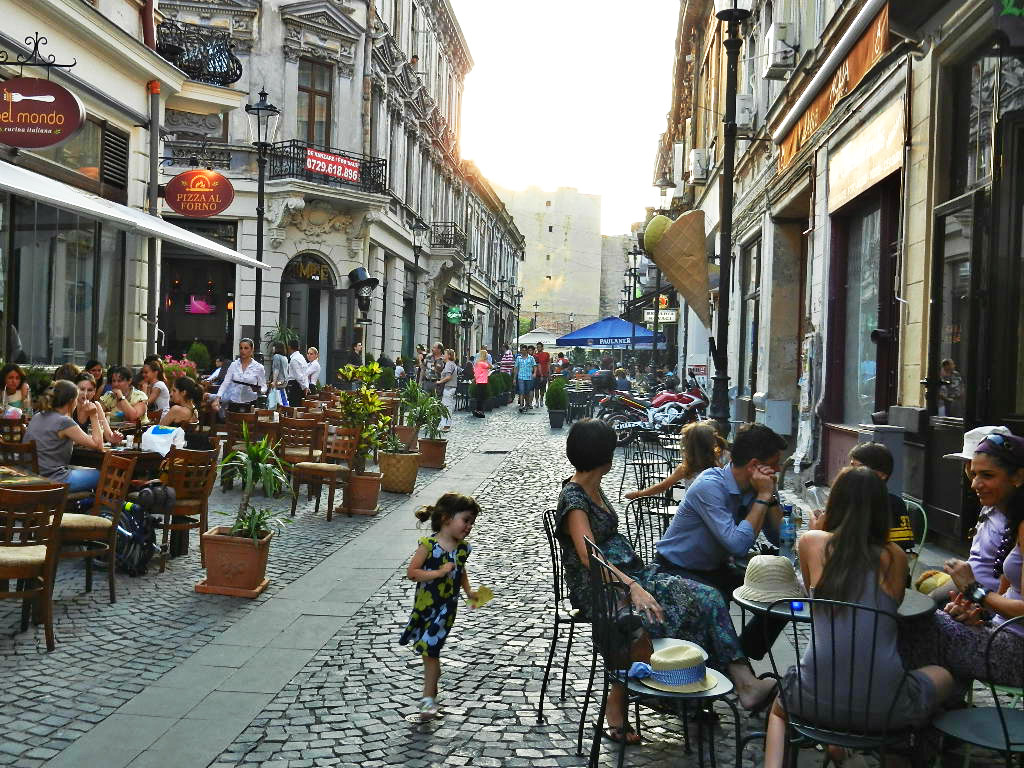
But in the past few years, she has gone through several transformations. She has learned to take more chances, open up to the world, surround herself by friends, experiment and enjoy life.
然而过去的几年,她的生活经历了几次大的调整,她也开始享受这些变化,敞开接受这个世界,联络朋友并且享受生活。
I’ve only been partly present during this period, mostly through Skype conversations and updates from my mom.
这段时间,我只参与了姐姐部分的生活,而且大多数情况下是通过Skype聊天或透过我妈妈了解她的动态。
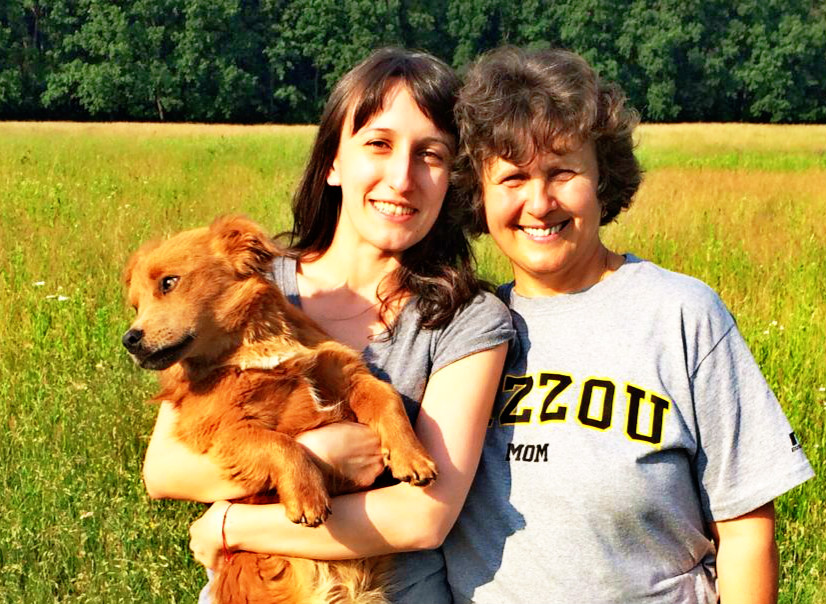
I know it was not enough.
我知道这当然不够。
Technology can make us feel like we have a permanent connection with our loved ones, even if we live on separate continents and plan “short and sweet” visits.
New York Times columnist Frank Bruni earlier this month wrote about the “myth of quality time.” He saidbrief visits are not enough to maintain a meaningful bond with your family members. You need to invest time because special moments are unplanned.
科技让我们可以与所爱的人保持看似永久的联结,即使住在不同的大洲,也能随时来场“短暂而甜蜜的”造访。纽约时报专栏作家Frank Bruni在月初写过一篇文章关于“品质时间的魔力”。他说,短暂的拜访并不足够维系你与家庭成员的纽带,你需要投入更多的时间,因为对每个人来说,珍贵特殊的时刻从来都是措手不及的。
“People tend not to operate on cue,” Bruni wrote. “At least our moods and emotions don’t. We reach out for help at odd points; we bloom at unpredictable ones. The surest way to see the brightest colors, or the darkest ones, is to be watching and waiting and ready for them.”
“人们总是不会按照计划提示的走。至少我们的情感和情绪是不会听话的。我们总是在不寻常的时刻需求帮助,我们总是对意外出现的人表达兴奋之情。对我们珍惜之人,如果想要一路相随,最可靠的方式就是不断的关注、等待以及时刻准备好站在他们身边。”
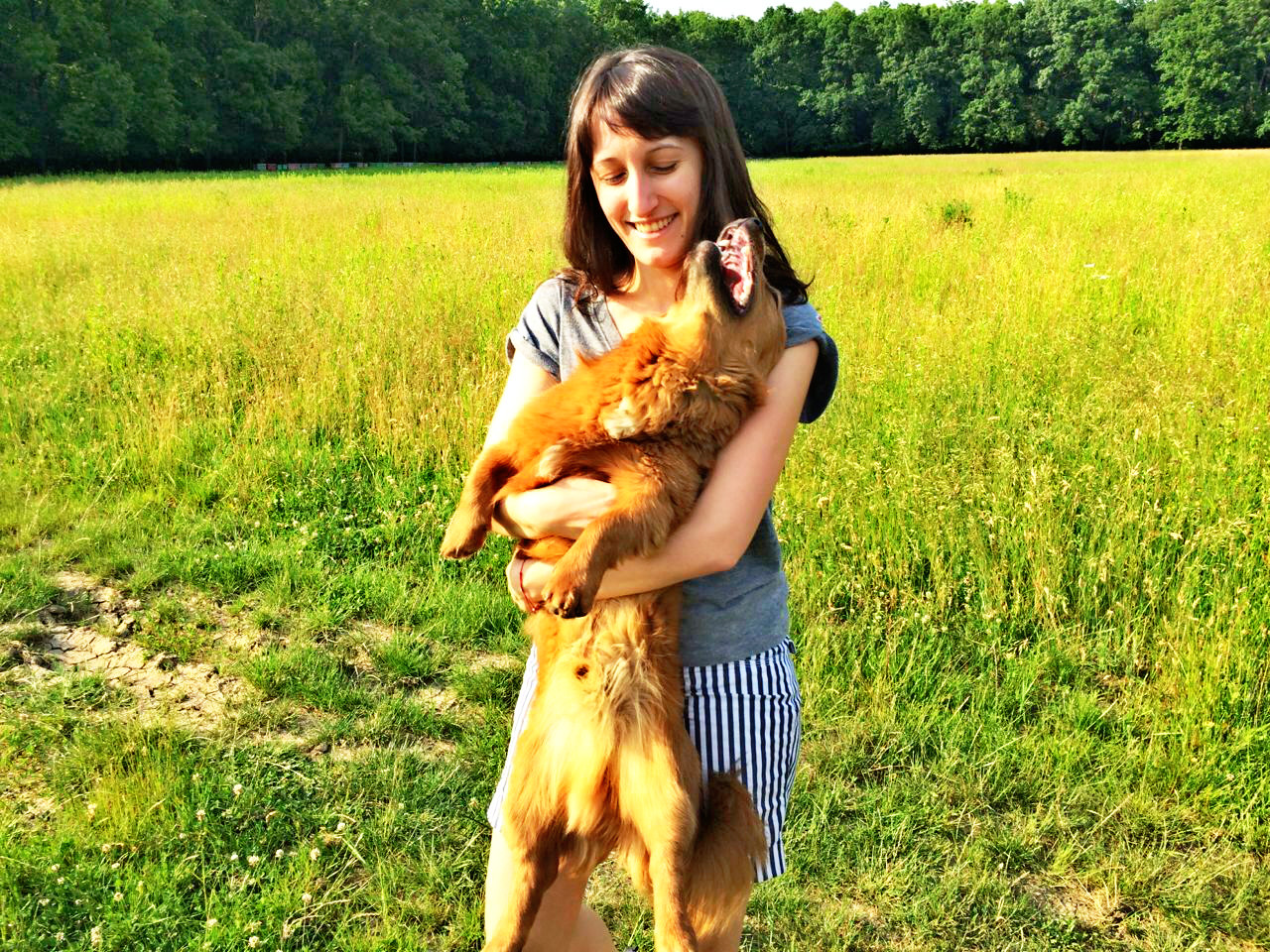
I realized the value of spending much time with my family this summer, when I spent more than four weeks in my mother’s village while waiting for my work visa. I discovered my mother and grandmother and grew closer to them with each day.
今年夏天,我真切体会到了与家庭在一起的珍贵。我在妈妈所在的小镇待了四周多,每天,我与妈妈和祖母的关系都更进一步。
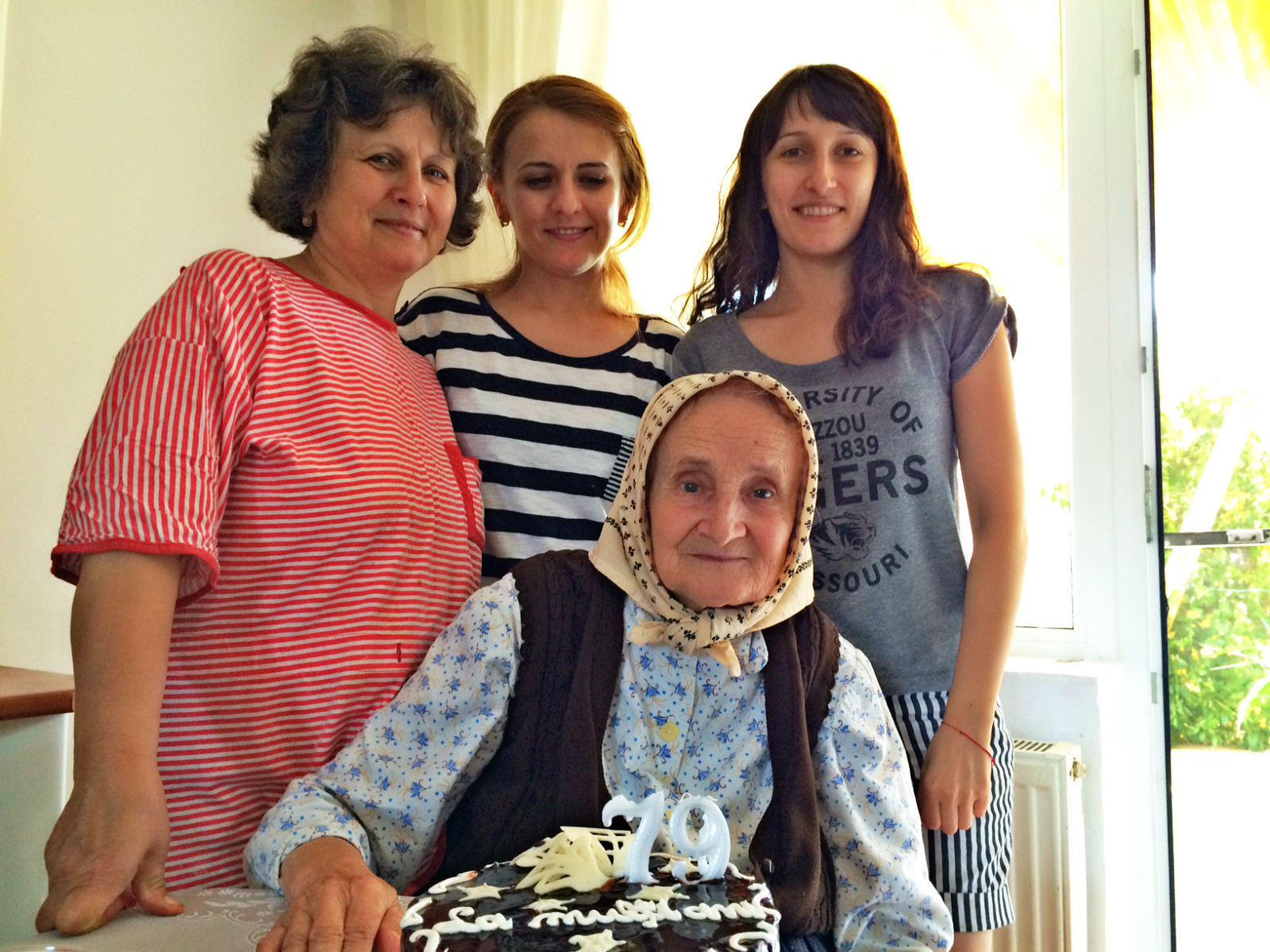
I wish I had been more present in my sister’s life in the past few years. And I wish she could have been around for my own periods of growth and transformation. I’m doing the best I can now and hope to get better at creating opportunities to be present in the future.
现在的我仍然希望自己在过去几年里更多的参与到姐姐的生活中去,我也希望她能更多的参与我的生活。现在我正在尽我所能去创造机会,让我们彼此更贴近。

On Sunday, we all visited the Great Wall at Mutianyu. It was a brilliant day. We hiked the steep stairs and reached the last tower in the restored section of the wall.
My sister wanted to continue. We went on through bushes, trees and wild flowers and rested on top of a tower ruin. We walked back, and as we were reaching the restored section of the wall, my sister said, “We should have walked more into the wild section.”
上周日,我们一起去了慕田峪长城。阳光晴好,我们爬过陡峭的石阶,到达长城修复段的终点。姐姐还想继续,于是我们又爬过灌木丛、树木、野花,走到了没有被修复过的废墟段。回到修复段,姐姐说,要是刚刚再多走一点就好了。
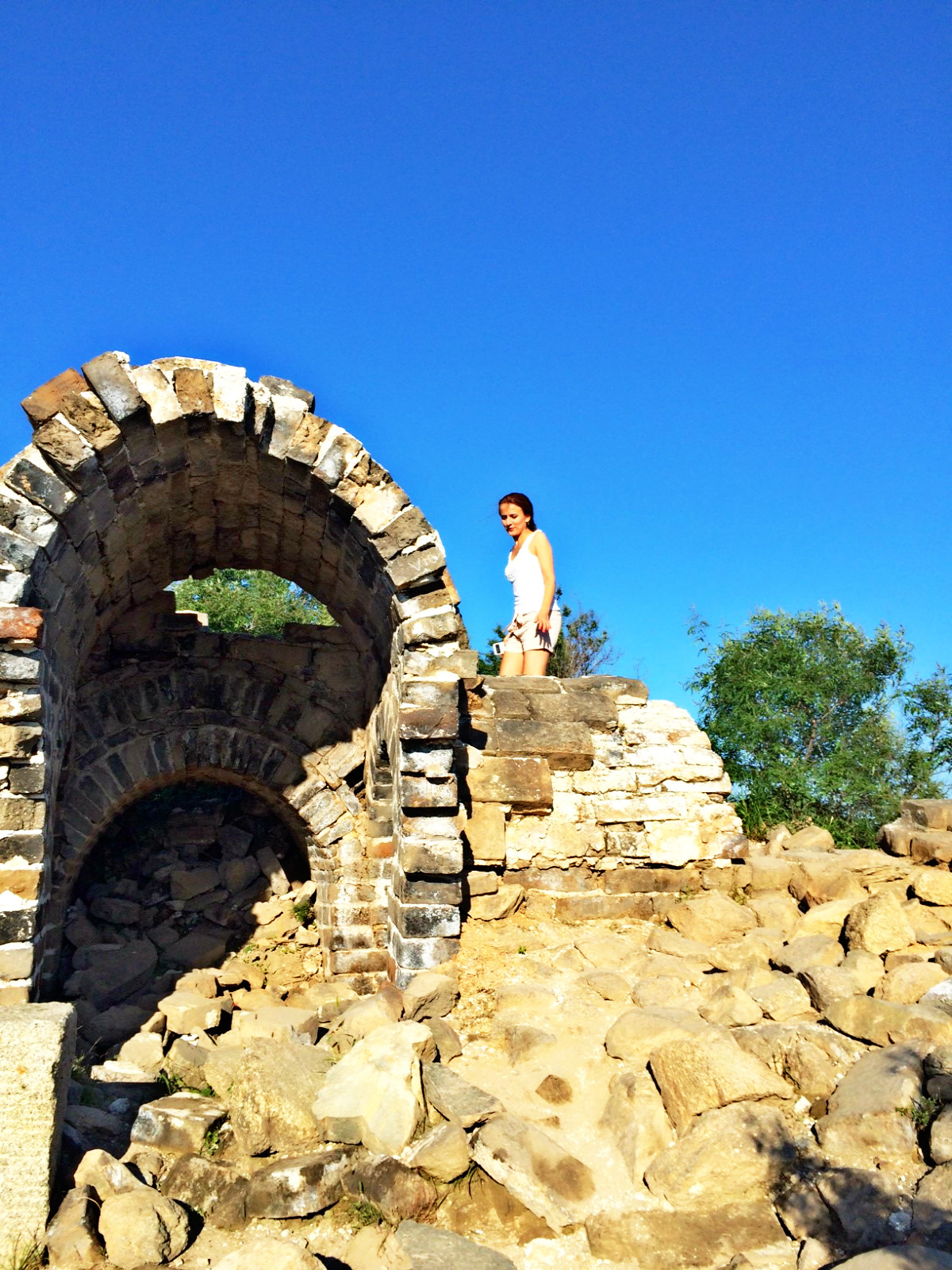
It was great to be there with her, and it reminded me that the upside of being away from home is discovering new worlds, and sharing them with your loved ones.
与姐姐在一起的时光太美好,这也提醒着我,出门远行的一大好处就是,你会发现一个更大的世界,并因此能够把它与所爱之人分享。




评论